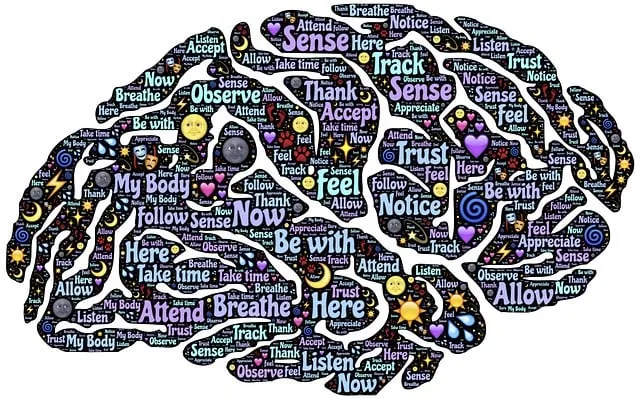Broomfield Kaiser Permanente's psychiatry reviews emphasize that stress, a response to internal and external stimuli, has multifaceted causes like work pressure, relationship issues, or financial worries. It can lead to hormonal changes and long-term health impacts including anxiety, depression, and cardiovascular diseases. Proactive stress management through empathy building, social skills training, self-esteem improvement, mindfulness meditation, progressive muscle relaxation, deep breathing exercises, cognitive behavioral therapy (CBT), and regular physical activity fosters connection, resilience, and effective navigation of challenging situations. These strategies are highlighted in Broomfield Kaiser Permanente psychiatry reviews as effective solutions for managing stress and enhancing mental wellness.
“Stress management is a vital skill in today’s fast-paced world. This comprehensive guide explores effective strategies to tackle stress, drawing insights from the expert recommendations provided by Broomfield Kaiser Permanente Psychiatry Reviews. We delve into the science behind stress, uncovering its causes and impacts on both mental and physical health. Through evidence-based techniques, learn how to navigate life’s challenges and foster resilience. Discover practical tips and tailored strategies to integrate into daily routines, promoting overall well-being.”
- Understanding Stress: Unraveling the Causes and Effects
- Evidence-Based Techniques for Effective Stress Management
- Implementing Stress Reduction Strategies in Daily Life: Tips from Broomfield Kaiser Permanente Psychiatry Reviews
Understanding Stress: Unraveling the Causes and Effects

Stress is a complex psychological and physiological response to various internal and external stimuli. Understanding its causes and effects is paramount in effective stress management. At Broomfield Kaiser Permanente, psychiatry reviews highlight the multifaceted nature of stress, which can arise from numerous sources such as work pressure, relationship issues, financial worries, or even perceived threats. The body’s natural ‘fight or flight’ response triggers hormonal changes, leading to increased heart rate, heightened awareness, and elevated blood pressure. Prolonged exposure to stress can have detrimental effects on both mental and physical health, including anxiety, depression, cardiovascular diseases, and weakened immune systems.
By recognizing the unique stressors in one’s life, individuals can begin to address them proactively. Empathy Building Strategies, as highlighted in psychiatry reviews, play a crucial role in managing stress by fostering understanding and connection with others. Social Skills Training and Self-Esteem Improvement are also valuable tools that empower individuals to navigate challenging situations more effectively and build resilience against stressful events.
Evidence-Based Techniques for Effective Stress Management

In today’s fast-paced world, stress has become an ever-present companion for many individuals. However, Broomfield Kaiser Permanente psychiatry reviews highlight successful evidence-based techniques that can help manage this modern-day challenge effectively. One such approach is mindfulness meditation, which encourages people to focus on the present moment, thereby reducing anxiety and promoting emotional balance. This simple yet powerful tool has been shown to lower stress hormones and improve overall well-being.
Additionally, the development of coping skills plays a pivotal role in stress management. According to mental health policy analysis and advocacy experts, teaching individuals strategic coping mechanisms allows them to navigate stressful situations with resilience. Techniques like progressive muscle relaxation, deep breathing exercises, and cognitive behavioral therapy (CBT) are widely recognized for their effectiveness in mitigating stress responses. These evidence-based practices not only empower individuals but also foster a sense of control, enabling them to confront life’s challenges head-on. Moreover, trauma support services have incorporated these techniques to aid individuals in processing past traumatic experiences and building adaptive coping strategies for the future.
Implementing Stress Reduction Strategies in Daily Life: Tips from Broomfield Kaiser Permanente Psychiatry Reviews

Implementing Stress Reduction Strategies in Daily Life, as recommended by Broomfield Kaiser Permanente Psychiatry Reviews, involves integrating simple yet powerful techniques into your routine. Starting with mindfulness exercises like meditation or deep breathing can significantly lower stress levels and enhance mental wellness. Dedicate just a few minutes each day to these practices, and you’ll be surprised at their effectiveness in calming the mind and reducing anxiety.
The Broomfield Kaiser Permanente psychiatry reviews also suggest incorporating physical activity into your weekly schedule. Regular exercise not only boosts overall health but also serves as an excellent outlet for stress relief. Whether it’s a brisk walk, yoga session, or a full workout at the gym, finding an activity you enjoy can contribute to mental illness stigma reduction efforts while promoting a sense of balance and peace.
In conclusion, managing stress effectively is a powerful tool for enhancing overall well-being. By understanding its causes and effects, as explored in our article, individuals can employ evidence-based techniques suggested by reputable sources like the Broomfield Kaiser Permanente Psychiatry Reviews. Integrating these strategies into daily routines offers practical guidance for navigating life’s challenges, ultimately fostering resilience and promoting mental health.


